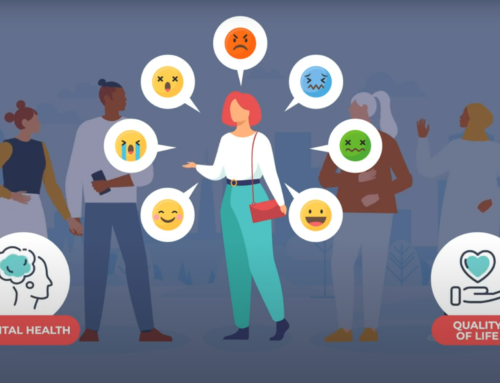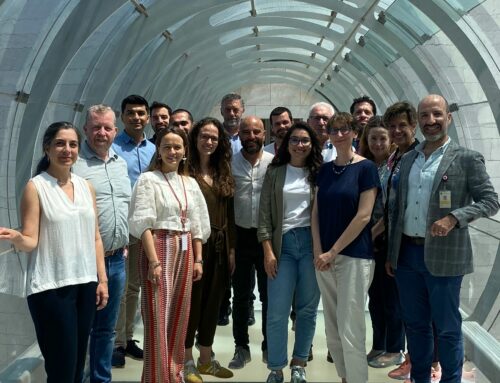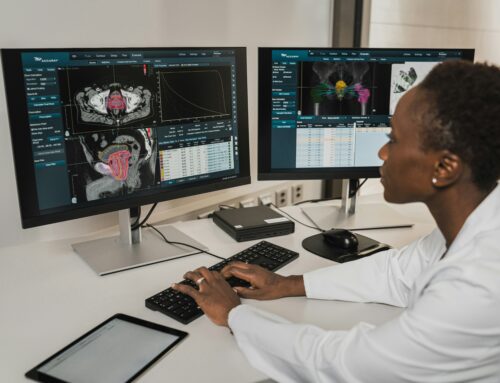The global vision of the FAITH project is to support the quality of life of cancer patients. To this end, we aim to provide an Artificial Intelligence application that remotely identifies and analyses depression markers, thus increasing awareness of patients’ mental health situation. The application will monitor, in a non-intrusive way, user activity, outlook, appetite, and sleep as indicators of mental health status.
Why monitor sleep?
A high percentage of women with breast cancer begin chemotherapy with disturbed sleep. In particular, sleep fragmentation that disrupts sleep maintenance characterizes the initial nights after chemotherapy. Overall, sleep difficulty is a prominent concern of cancer patients.
And with good reason, since sleep and mental health are closely connected. Sleep deprivation, in fact, affects a person’s psychological state and mental health. For example, people with mental health disorders are more likely to experience insomnia or other sleep disorders. Among other parameters, the assessment of sleep quality is important for clinicians and, in particular, for mental health practitioners to assist patients with the most appropriate treatment.
How to monitor sleep?
When it comes to finding ways to monitor sleep, monitoring gadgets (e.g. bracelets and smartwatches) are a simple solution, readily available in the market. However, such gadgets usually lack precision, as most of those are wrist worn devices: thus, they provide intelligence about upper arm movement while lacking in information about the steadiness of the body as a whole.
Moreover, they tend to become another tool that a person needs to wear in order to gather data. Indeed, in the case of healthcare measurements, this can prove difficult.
In fact, sometimes patients may experience constraints due to medical consultation and demanding medical exams. Therefore, they may not feel comfortable in performing more tests, or being open to further requests. For patients that are already using devices (e.g. Holter, catheters), wearing a new one could represent an additional burden. Patients already debilitated may meet the prospect of an additional inconvenience with a lack of motivation to engage in new experiments.
That is why FAITH tried to answer to the question:
Does there exist a device in the market that can monitor sleep, while providing raw data and allowing an SDK for development?
Therefore, we addressed the component of sleep in a research paper. Overall, we reviewed a set of commercial devices to check their suitability for this kind of assessment. Below is a quick overview of the results of our research.
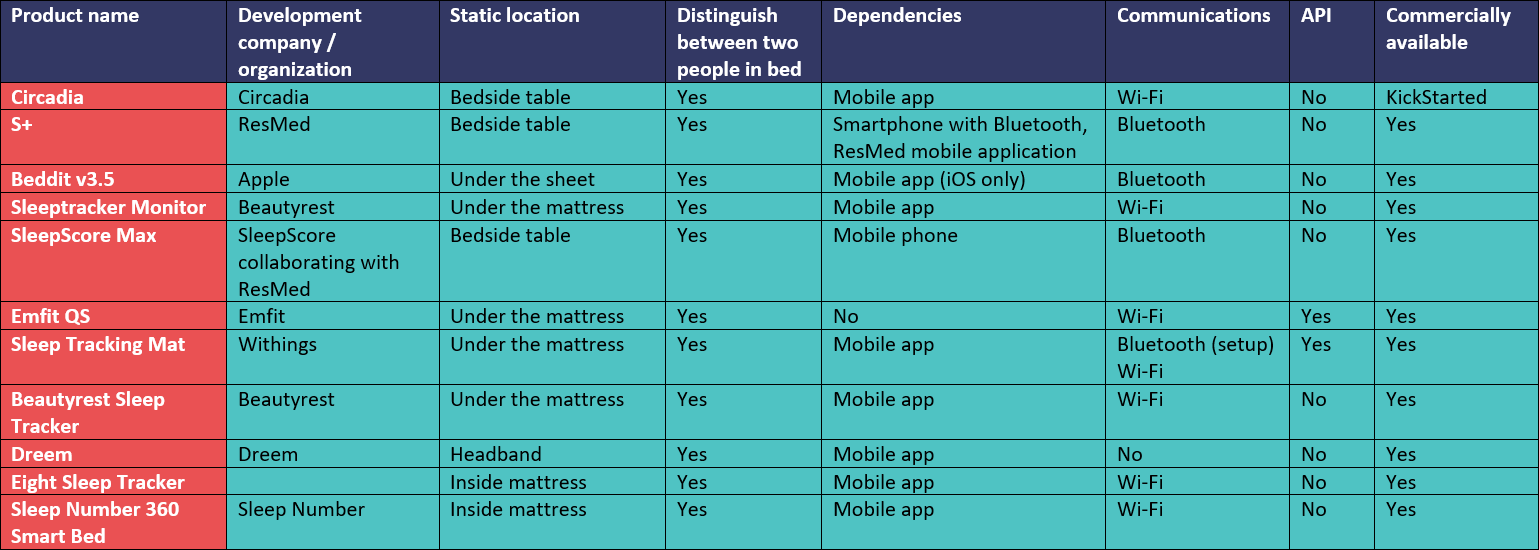
Our choice: the Emfit QS+ACTIVE
Regarding the sleep trackers, an important feature for FAITH is that they can supply the data via applications. In this sense, the most suitable device — and our selection of choice — seems to be the Emfit QS, as it provides more insights and detailed information about the measurements performed.
The Emfit QS+ACTIVE is put under the mattress while the person is sleeping and relies on ballistocardiography to acquire measurements. Ballistocardiography is a technique for sensing the sudden ejection of blood through the aorta with each heartbeat. It provides useful measurements, such as whole night Heart Rate Variability (HRV), total recovery, and recovery efficiency.
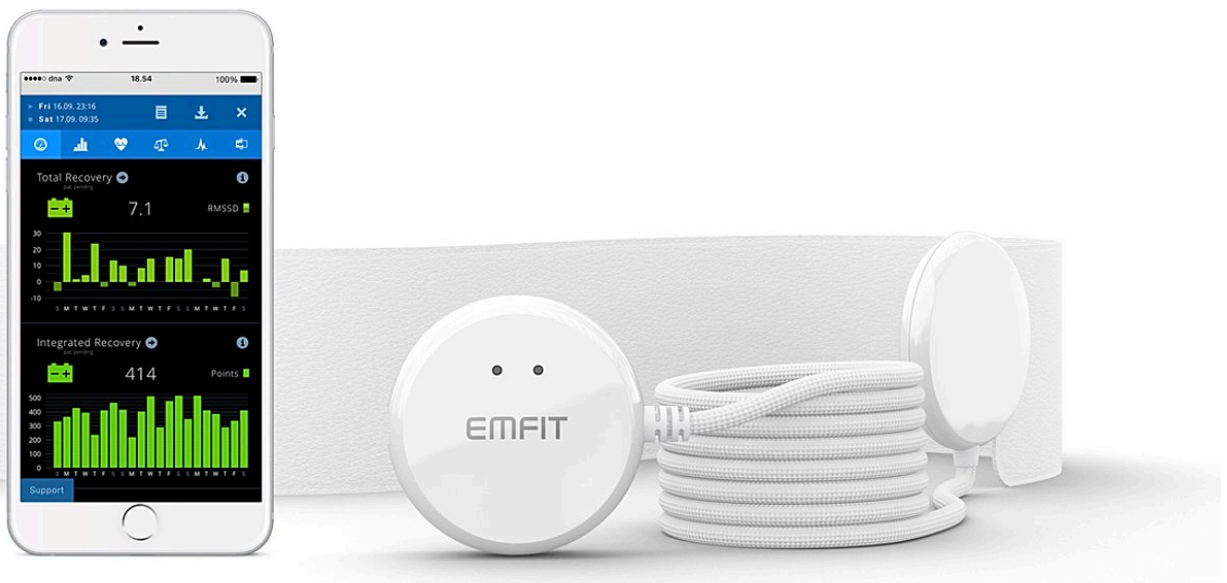
The major advantage of the Emfit QS is that it performs movement assessment independently of the arms or wrist position and movement, therefore allowing normal routines. Early tests confirm its suitability as an indicator of quality of sleep to be handed to mental health professionals for patient’s evaluation. Also, it seems to be the only device providing raw data and a software development kit (SDK) environment for developers.
Next, FAITH will assess the technological and functional inclusion of sleep trackers in a home environment. We will focus in particular on its storage needs, security aspects, and privacy for users and for the whole framework.
Author: Stefanos Venios of Suite5 Data Intelligence Solutions Limited
Source:
Luís-Ferreira, F., Sarraipa, J., McManus, G., Gião, J., Jardim-Goncalves, R., O’Brien, P. (2020), Sleeping Movement Detection Towards Mental Health Indicators – A Review (presented at the ICE/IEEE ITMC Conference 2020)


